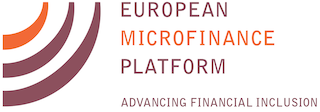 The Grameen Credit Agricole Foundation recently carried out a pilot project in Uganda engaging financial services providers (FSPs) in serving refugees and their host communities. The goal is to support FSPs in adapting their products to the needs of forcibly displaced persons (FDPs) – “adapting” because new products are not generally needed – and rolling them out to prove the business case for serving these populations. Despite early reluctance from FSPs, their portfolio-at-risk ratios turned out to be under 5 percent – sometimes better than their overall portfolios. As a result, two of the foundation’s FSP partners have gone on to – without further subsidy – open additional branches to serve FDPs and their host communities. The inclusion of host communities is key to avoid the perception that FDPs are receiving undue special treatment.
The Grameen Credit Agricole Foundation recently carried out a pilot project in Uganda engaging financial services providers (FSPs) in serving refugees and their host communities. The goal is to support FSPs in adapting their products to the needs of forcibly displaced persons (FDPs) – “adapting” because new products are not generally needed – and rolling them out to prove the business case for serving these populations. Despite early reluctance from FSPs, their portfolio-at-risk ratios turned out to be under 5 percent – sometimes better than their overall portfolios. As a result, two of the foundation’s FSP partners have gone on to – without further subsidy – open additional branches to serve FDPs and their host communities. The inclusion of host communities is key to avoid the perception that FDPs are receiving undue special treatment.
The Alliance for Financial Inclusion has found that many central banks have not given much consideration to the needs of FDPs, partially due to their exclusion from the FinScope and Findex surveys. One of the ways regulators can help is to allow for tiered know-your-customer (KYC) thresholds, so FDPs can get permission to perform smaller transactions with less documentation. Historically, central banks have not reached out often to stakeholders such as UNHCR, so it can be very helpful for FSPs looking to serve FDPs to initiate contact with their country’s regulators.
UNHCR data indicates the number of FDPs has nearly tripled since 2009 to 120 million people, about half of whom are from Syria, Afghanistan and Ukraine. This figure would be higher, but it does not include the many Palestinians who have been displaced by conflict over the last several months.
UNHCR is working to move away from establishing camps and toward helping people move directly into host cities. As part of this process, connecting people to financial services can help FDPs become contributors to their host communities more quickly, rather than being considered a burden.
Pakistan’s Research and Development Foundation works with people who have been internally displaced by climate events. Given the increasing frequency of climate disasters, the foundation takes the position that there is a business case for serving people in Pakistan with products such as microinsurance, which can allow them to be more resilient.
The above discussions occurred Friday at European Microfinance Week, the morning after the announcement that the 2024 European Microfinance Award will center on services that engage FDPs.
This report is part of a sponsored series on European Microfinance Week 2023, which took place from November 15 to 17. MicroCapital has been engaged to promote and report on the event each year since 2012. Stay tuned over the coming days for more news from the conference! You may learn more about European Microfinance Week at https://www.emw2023.eu/.
Additional Resources
European Microfinance Week 2023 homepage
https://www.emw2023.eu/
MicroCapital coverage of European Microfinance Week since 2012, including the European Microfinance Award
https://www.microcapital.org/category/european-microfinance-week/
Similar Posts:
- SPECIAL REPORT: Financial Inclusion for Women Requires Engaging All Levels of the Microfinance Institution
- SPECIAL REPORT: European Microfinance Week 2023 Opens With Action Group Meetings, Including Investors Sharing Strategies for Measuring Social Performance #EMW2023
- SPECIAL REPORT: European Microfinance Week 2023 Is Almost Here! A Tour of the Upcoming Conference’s Sessions and Streams
- SPECIAL REPORT: e-MFP Green Inclusive and Climate Smart Finance Action Group Focuses on Capacity Building
- SPECIAL REPORT: Increasing Financial Access for Women with Better Data, Mentoring, Staff Training, “Gender-smart” Audits
